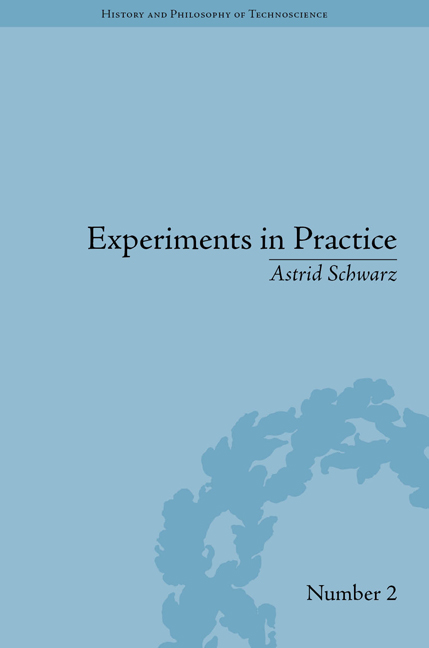Book contents
- Frontmatter
- CONTENTS
- List of Figures
- Introduction: Towards an Experimental Mode in Science, Society and Philosophy
- Part I Questioning the Scientific Method
- Part II Different Modes of Experimentation
- Part III Tirelessly Tinkering with Unruly Conditions
- 7 Stretching the Baconian Contract – but How Far?
- 8 About the Epistemology and Culture of Borders/Boundaries
- 9 Excursus: ‘Bridging Science’ or ‘Problem-Based Science’?
- Part IV Practising Experiments in a World of Environmental Concerns
- Conclusion: Experiments in Practice – the Work of Experiments
- Notes
- Works Cited
- Index
7 - Stretching the Baconian Contract – but How Far?
from Part III - Tirelessly Tinkering with Unruly Conditions
- Frontmatter
- CONTENTS
- List of Figures
- Introduction: Towards an Experimental Mode in Science, Society and Philosophy
- Part I Questioning the Scientific Method
- Part II Different Modes of Experimentation
- Part III Tirelessly Tinkering with Unruly Conditions
- 7 Stretching the Baconian Contract – but How Far?
- 8 About the Epistemology and Culture of Borders/Boundaries
- 9 Excursus: ‘Bridging Science’ or ‘Problem-Based Science’?
- Part IV Practising Experiments in a World of Environmental Concerns
- Conclusion: Experiments in Practice – the Work of Experiments
- Notes
- Works Cited
- Index
Summary
Francis Bacon articulated what came to be called the ‘Baconian contract’ between modern science and society. The key idea behind this contract is that scientific experimentation cannot cause harm to society as long as it is performed within the walls of scientific institutions. Since the seventeenth century, these walls have served the ideal of an unconstrained quest for facts and the construction of arte-facts for the purpose of expanding and testing the knowledge base of science. The Baconian contract is based on a structural analogy between the methodological isolation of experimental systems from their natural environments and the ideological isolation of experimental activities from their social environments. If the normative structure of society is prepared to permit all kinds of investigations into the causal structure of nature – the nature of human beings and of society alike – then science is prepared to provide all spheres of society with potentially useful knowledge and technology in return. Bacon's lifelong (albeit unsuccessful) efforts to gain political support for organizing experimental research on a large scale caused him to ponder the question: what kind of institutional setting would convince society of its benefits? Since the promise of gains cannot be justified by an anticipatory form of argument, he suggested that balancing social costs and benefits was a matter of risk and trust:
For there is no comparison between that which we may lose by not trying and by not succeeding; since by not trying we throw away the chance of an immense good; by not succeeding we only incur the loss of a little human labor . . . It appears to me . . . that there is hope enough . . . not only to make a bold man try [ad experiendum], but also to make a sober-minded and wise man believe.
- Type
- Chapter
- Information
- Experiments in Practice , pp. 111 - 122Publisher: Pickering & ChattoFirst published in: 2014

